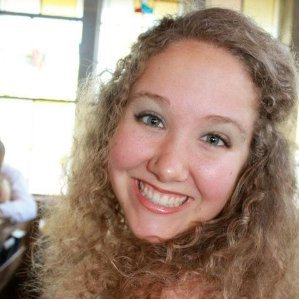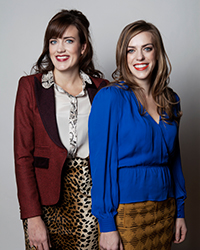Multiple Jobs, Pieced Together by Passion: Anna-Lise Trudell’s Story
/As told to Elyse Trudell, WorkStory Ambassador
Like many of our generation, I have multiple jobs going at the moment, most in the field I am passionate about—the non-profit, violence against women sector. I feel as though it is a process of piecing together one’s career. It’s not about finding it and landing it, but about taking on different opportunities, be they jobs or volunteer positions. Many opportunities, all pieced together, can make up the equivalent of a full time job—helping you to build a name for yourself in your sector, and garner the experience you need.
I am currently the Program Coordinator of ‘Girls Creating Change’, at the Sexual Assault Centre London. Girls Creating Change is our girls’ violence prevention group, where we focus on building a girl’s sense of self-worth, empowerment and a sense of themselves as change makers. The girls meet once a week with facilitators, for a hangout and discussion time on:
• gender identity and what it means to be a woman
• self-esteem, boundaries and being assertive
• healthy sexuality
• violence, self-harm and bullying
• agency, leadership and taking action (http://sacl.ca/youth/relationships-plus/)
In this position, I am part PR rep, selling the program to the girls and to community organizations; I am part manager, overseeing a staff of 3 facilitators and multiple volunteers; I am a program developer, partnering with research institutes to help support ongoing research on girls’ programming; and, I’m a fundraiser, grant-writing and budget managing to support Girls Creating Change. Most of these skill sets weren’t taught to me in school---I had to learn them as I went.
I’m also the Project Coordinator for the Coalition Assisting Trafficked Individuals. I’ve coordinated the development and implementation of a training program aimed at addressing human trafficking for over 300 front line staff in our region, writing and publishing a 60 page manual, facilitating 25 training sessions, and co-chairing monthly Coalition meetings where I have developed workplans and responded to over 20 bosses around the table. As is the case for the position with Girls Creating Change, I did not learn these skill sets---financial management, work plan and project development, specific facilitation models---in school. So what did my schooling help me with?
I did an undergrad in Honours Specialization Political Science and Minor in Women’s Studies at Western University. I loved political advocacy, and was drawn to issues facing women. But I hadn’t the slightest idea what this degree could lead me to in terms of a career…..and so I opted for grad school, doing a Master’s of Public Administration at the University of Ottawa. This program appealed to me because it seemed to have a practical application, you learned how government agencies functioned, how a public servant went about supporting government programs, and there was an internship component to the program. This internship was a great opportunity for me, as it led me to be a political staffer on Parliament Hill for one year--a phenomenal experience in political advocacy!
But I missed learning, I missed being surrounded by like-minded individuals pursuing gender issues. And so I returned to school, to do a PhD in Women’s Studies at Western University. I started volunteering at the Sexual Assault Centre London during my second year of the PhD. This volunteer position eventually led me to making the connections I needed to land my jobs with Girls Creating Change and the Coalition Assisting Trafficked Individuals. Both combine my interest and love for policy and programming, along with a focus on gender and social justice. And by making these connections, but seeking out mentors in the women who have been in the field longer than me, I have the fortuitous chance to partner my PhD research with the Girls Creating Change program.
I can’t claim to have masterminded a linear path to where I am today---it is rather haphazard. That is my biggest take away from my story, that we don’t need to know exactly what we ‘want to be’, and have a specific game-plan in mind to get there. Make connections, foster mentor relationships with those whose careers you admire, and be patient.
















